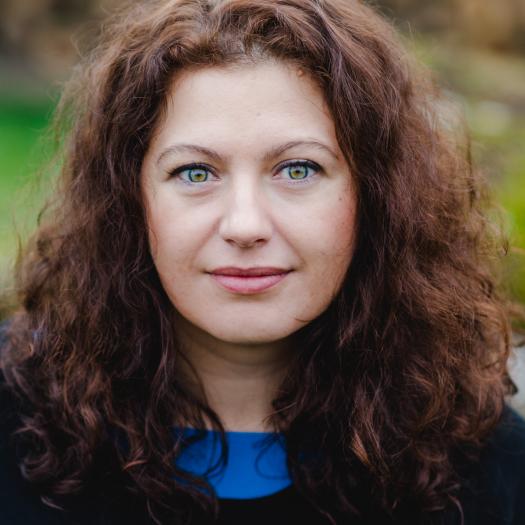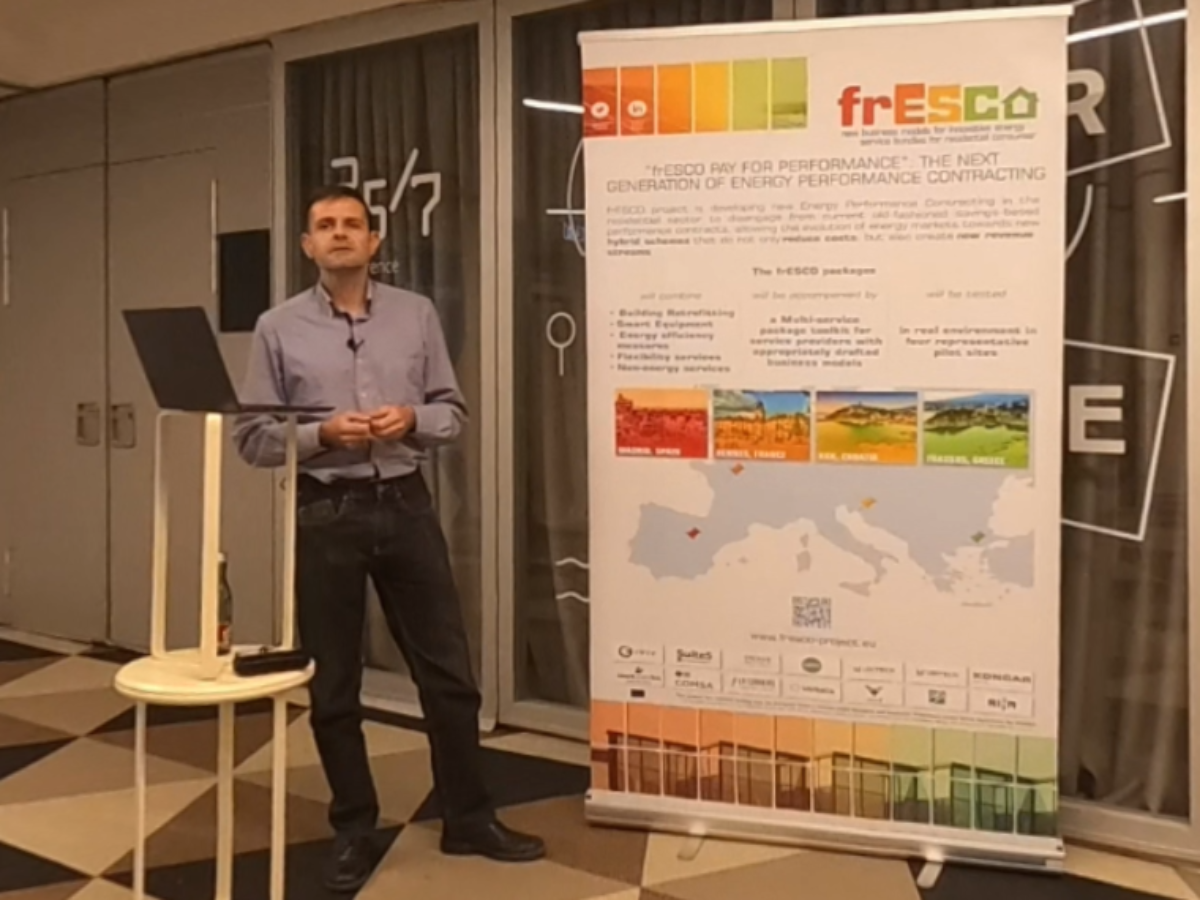Energieinstitut Johannes Kepler University Linz – the Interview
Behind every project there is a team of people who work together for a common purpose. Knowing a project does not only mean understanding the results achieved or the activities carried out, but also knowing who is behind these activities, what motivates them and what were the life paths, choices and personal goals that led them to be part of a research team today. For this reason we want to introduce you today one of the frESCO partners, Andrea Kollmann, from Energieinstitut – Johannes Kepler University Linz (EI JKU), through an interview dedicated to her.

EI JKU
Would you briefly describe yourself and your career?
I am Andrea Kollmann, Senior Project Manager at the Energieinstitut an der Johannes Kepler Universität Linz. I have extensive experience with large research projects, both in Austria and in Europe, as coordinator and partner. I publish regularly in the field of energy economics with a focus on the analysis of energy-related decision-making processes of households, individuals and firms.
What does EI JKU organization mainly deal with outside the frESCO project?
The vision of the Energieinstitut at JKU (EI JKU) is to actively develop an energy system which minimizes dependence on fossil-based energy sources while improving the living, economic and environmental conditions of society as a whole.
EI JKU follows a holistic approach and researches the energy system taking into account the individual components of the entire energy system: generation, storage, provision, and consumption. Each component is assessed in multidimensions, as part of the collective energy system and by the three departments of the institute: energy economics, energy law, energy technology.
Which is your role in frESCO?
EI-JKU leverages its expertise in energy markets, consumer behaviour and energy policy and regulation to identify the drivers and barriers to the frESCO solution. In particular, we lead the collection of the necessary input to develop the novel energy services and their subsequent validation in the project pilots. Moreover, our team at EI JKU actively participate in the definition of new business models, particularly the legal and contractual relationships among the different stakeholders, and in the market analysis to ensure their realisation.
In which way do the regulatory framework and the energy market structures influence the adoption of frESCO’s solutions?
The frESCO innovative energy services rely on a big-data platform to apply the adequate artificial intelligence in order to provide real-time services to obtain combined revenues from energy efficiency in buildings and demand flexibility traded in qualified markets. The main markets where frESCO intervenes are: the electricity market, including the wholesale and domestic retail markets, the emerging demand flexibility markets, and the self-consumption in the residential sector. Additionally, the energy efficiency regulations for buildings are studied with a focus on residential buildings.
Existing regulatory frameworks currently offer a number of financing schemes and regulated aids, coming from both private funding such as investment funds, corporate bonds or crowdfunding initiatives, and from public funding mechanisms such as EU funds, national funds or international financial institutions. These funding systems help to diminish the capital burden of the necessary initial investment but have been monopolised by high-investment projects related to renewable uptakes or building refurbishments. An analysis of the four demo countries’ National Climate and Energy Plans lead to optimism for the frESCO solutions, since the necessary and increasing uptake of renewable energy sources to meet the ambitious EU targets and the important size of the domestic sector makes room for a large number of end-users’ participation in demand flexibility schemes and pay-for-performance efficiency services.
Could you summarize which are in your opinion, and based on the analysis conducted within the project, the main barriers imposed by the current regulations and market structure that can negatively impact the project?
The regulatory barriers identified in this report somewhat put some barriers to the project’s service deployment, exploitation and replication potential for a (very) near future, but as a summary, they do not jeopardise the project demo activities in the four countries studied. Although the full potential of frESCO’s set of solutions for residential prosumers cannot fully be deployed in all countries as of today, the necessary convergence towards 2030 and 2050’s EU objectives will remove the existing local limitations concerning market and regulatory constraints soon.
There are still some limitations in the local electricity markets, especially concerning the participation of low-volume demand response in some markets, like wholesale and ancillary service markets, and the limitations for aggregated flexibility due to minimum volume bids and the lack of simple and accepted Measurement and Verification Protocols. For energy efficiency in buildings, the market is open and offers a variety of services based on energy performance contracts, but the domestic sector is rarely targeted due to low benefits and high operation costs.
For more details refer to Deliverable 2.2 (Overview of the regulatory and market framework for energy services in the residential sector) in the Results & Public Reports webpage.
What are the main challenges you face in this project and how do you overcome these challenges?
A major challenge our team faced during the frESCO project was collecting data safely during the COVID-19 pandemic. To this end, we and – especially! – our colleagues at the four demo sites had to remain flexible and creative to develop solutions to the unique situation at each location. Additionally, the curation of data collection templates had to reflect the unique nature of each demonstration site (apartment buildings, seasonal hotel, stand-alone residences, and social housing organization) but also be able to provide enough information to be relevant to the frESCO work packages that depend on the findings of our work package.
What do you enjoy the most about working in an international Project Consortium such as frESCO?
The diversity of the group is certainly a very enjoyable part about the frESCO Consortium. Not only does the consortium represent at least a dozen nations but also cover a broad expanse of disciplines. Both of these traits allow for multifaceted coverage of situation at each demo site and strengthens the output of the frESCO project as a whole.






